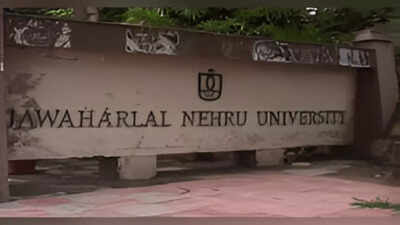ARTICLE AD BOX

JNU Polls 2025-26: The Election Committee of Jawaharlal Nehru University (JNU) has released the final list of candidates for the much-anticipated Students’ Union elections for the academic year 2025-26. A total of twenty candidates, including six women, will contest for the four central panel posts: president, vice-president, general secretary, and joint secretary in the November 4 polls.According to the committee, seven students are in the fray for the post of president, three for vice-president, five for general secretary, and five for joint secretary. Additionally, 111 valid nominations have been confirmed for the councillor positions across JNU’s 18 centres. The final list was announced on Wednesday evening after the withdrawal window closed, followed by the allocation of campaign spaces on campus.
Contestants and alliances
This year’s election will see a triangular contest between the Left alliance, Akhil Bharatiya Vidyarthi Parishad (ABVP), and National Students’ Union of India (NSUI), along with several independent and smaller group contestants.The ABVP has fielded Vikas Patel for president, Tanya Kumari for vice-president, Rajeshwar Kant Dubey for general secretary, and Anuj Damara for joint secretary.The Left alliance, comprising AISA, SFI, and DSF, has nominated Aditi Mishra for president, Gopika Babu for vice-president, Sunil Yadav for general secretary, and Danish Ali for joint secretary.
Meanwhile, the NSUI has put forward Vikash Bishnoi for president, Shaikh Shahnavaz Alam for vice-president, Preeti for general secretary, and Kuldeep Ojha for joint secretary.Outside these major alliances, AISF is contesting independently with Gopikrishnan U running for the general secretary’s post. From the Ambedkarite platform BAPSA, Raj Ratan Rajoria is contesting for president and Shuaib Khan for general secretary.
DISHA has fielded Shirshava Indu for president, while the Progressive Students' Association has put up Shinde Vijayalaxmi for the same post.
Campaign intensifies on campus
With the final list confirmed, campaign activities have visibly intensified across JNU. Posters, pamphlets, and open discussions have taken over as candidates and their supporters reach out to the electorate. School-level general body meetings will continue till October 31, followed by the university general body meeting on November 1.
The much-awaited presidential debate is scheduled for Sunday, November 2, while November 3 has been designated a no-campaign day.
Polling and counting schedule
Polling will be conducted on November 4 in two phases: from 9 am to 1 pm and from 2:30 pm to 5:30 pm. Counting of votes will begin at 9 pm the same day, and results are expected to be declared by November 6.The election process began on October 24 with the publication of the tentative voters’ list and grievance correction window.
The university’s grievance redressal cell continues to oversee the conduct of the polls and address disputes.
Background and significance
JNUSU elections
often mirror broader ideological trends within India’s student politics. Last year, Left-backed student groups secured three of the four central panel posts, while the ABVP won the joint secretary position, marking its first central panel victory in nearly a decade.With November 4 approaching, the campus is preparing for an active polling day, where students will exercise their democratic right to vote. The elections will not only determine the next student leaders but will also reflect the pulse of a politically conscious student community, continuing JNU’s legacy as a crucible of ideas, activism, and leadership.

 5 hours ago
3
5 hours ago
3








 English (US) ·
English (US) ·